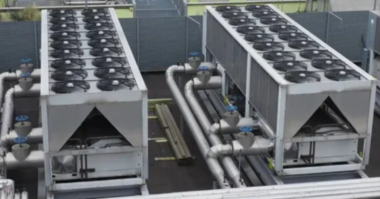People who use, service or operate boilers understandably want to keep that equipment running smoothly. Several technologies contribute to more-efficient boiler systems that meet modern needs and help users save money.
1. Remote Operating and Management Capabilities
It’s increasingly common for people to oversee boilers located at multiple locations. Fortunately, they can take advantage of pump features that allow them to make changes without being in a boiler’s physical location.
One manufacturer of circulating pumps for boilers offers an accompanying app that allows people to control those components remotely. They can also get relevant statistics, such as a pump’s temperature, duty points and power consumption.
App users can easily access step-by-step instructions for installing new pumps or managing existing ones. This solution saves paper and supports appropriate documentation by enabling people to create and sign performance reports directly from the app, too.
These features collectively support efficient boiler systems by increasing visibility and allowing people to make strategic changes from anywhere. Then, even if a boiler technician’s work takes them to another state, they can still see what’s happening with their equipment and react as necessary.
Many options work with Internet of Things (IoT) sensors. These components can track a wide variety of parameters, from vibration to pressure. Even the most observant technicians can’t necessarily detect all unusual symptoms before a pump failure occurs. However, IoT sensors can raise awareness of potential problems sooner.
Another IoT solution offers a geofencing feature so people can check the components of individual household boilers in a given area, such as an apartment complex. Besides promoting efficient boiler systems, such technologies help maintenance personnel spot and address issues.
2. Artificial Intelligence
Many potential boiler problems happen without people immediately noticing them. Corrosion is a significant risk that can affect formerly efficient boiler systems. Overall efficiency can decrease due to only one-eighth of an inch of scale buildup.
However, the more data technicians have about their boilers and the pumps inside, the more likely it is they’ll have the knowledge needed to achieve high performance with few or no issues. Another important thing to realize is that faulty pumps can function longer than people might expect, but that doesn’t mean the companies using them have dodged failures.
In one example, a boiler feed water pump had excessively high temperatures after operating for 16 months. Technicians replaced the thrust bearing twice within the next six months but could not find what caused the temperature increase. Then, after two years and one month of total operating time, the high-temperature alarm sounded again. However, this time, that event caused a pump seizure. Once maintenance workers inspected the pump, they discovered substantial cavities and erosion damage
However, technicians did not see those characteristics until after the pump failed. A better alternative is for them to have advanced solutions to detect gradually changing statistics for problems that could impact affected and previously efficient boiler systems. In this example, the boiler and its components gradually performed less well after the first high-temperature warning.
Artificial intelligence algorithms can prevent such scenarios. Well-trained algorithms can detect deviations from the norm, finding those fluctuations in vast amounts of data. Although artificial intelligence does not replace human knowledge about pump functionality and boiler performance problems, it can supplement technicians’ real-life expertise.
Advanced Technology Supports More-Efficient Boilers
Better boiler efficiency is a common goal as asset owners investigate the best ways to maximize uptime and save money. These examples show you how technology is a necessary part of thoughtful pump upgrades that become well worth the investment for decision-makers at industrial companies worldwide.





Comments